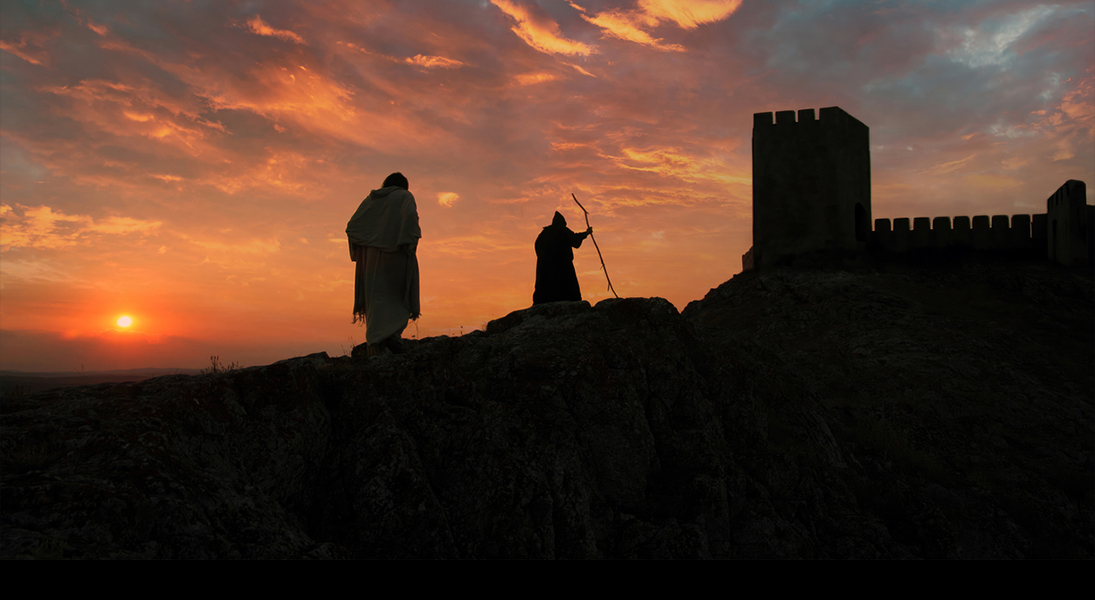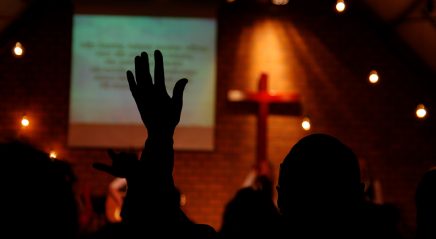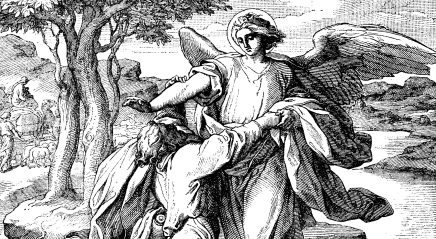Lectionary blog for Oct. 19, 2025
19th Sunday after Pentecost
Genesis 32:22-31; Psalm 121;
2 Timothy 3:14-4:5; Luke 18:1-8
A couple years ago, while the inimitable Rolf Jacobson was called to other duties, I stepped in to teach a Psalms course at Luther Seminary. One of the key learnings I hoped to impart to students was that the Psalms are performative pieces designed for use in certain liturgical settings. The Psalms of Ascent (120-134) were written specifically to prepare and encourage Jewish pilgrims for the journey from their homes up to Jerusalem for the pilgrimage festivals. The Psalm for this week was sung by out-of-breath people trudging up hillsides as they prepared to thank God for harvests and national deliverance, while at the same time beseeching God to intervene in the struggles of the moment.
This balance of offering praise and thanksgiving on the one hand, while determinedly asking God for help and deliverance on the other, is the theme of the lectionary readings this week.
Psalm 121 is an all-time favorite. The pilgrim lifts her eyes to the hills that she will ascend to on her way to Jerusalem. But help is not found there. Instead, she won’t quit her journey until she arrives at the city on a hill. While climbing, surrounded by hundreds and thousands of fellow pilgrims, she proclaims that God neither slumbers nor sleeps; God is not insensitive or unaware of the difficulties of life. Instead, the psalmist proclaims, and the people reaffirm, that God is a protector at heart who longs to save the people from both evil and even from difficult meteorological phenomena. The faithful recite this psalm year after year as they re-approach their helper, insisting that the wide-awake One sees and intervenes.
I wonder if there’s some connection between the unsleeping source of blessing in Psalm 121 and the story of Jacob at the Jabbok in Genesis 32. It’s not immediately clear what’s happening, or even with whom Jacob wrestles. Ancient commentors wondered if this was an unnamed prophet, Esau’s guardian angel, the Angel of the Lord, a pre-incarnate Jesus or just one more of the many times in which God appears in bodily form in Scripture. Whoever it is, Jacob and the wrestler engage in a physical act—the verb used probably means “got each other dusty,” rather than wrestling, specially.
Throughout the night, Jacob refused to quit, even after the wrestler delivered a permanent injury. Despite this, Jacob clung onto him until he received the blessing.
Throughout the night, Jacob refused to quit, even after the wrestler delivered a permanently crippling injury to his pelvis. Despite this, Jacob clung onto him, until he received the blessing recognizing how he had struggled with humans and with God. Whatever else, Jacob understands his own struggle to extract a blessing as somehow granting him sight of the divine visage (32:30). Jacob didn’t let go!
Jesus tells a related parable about the need to press on and not quit while approaching God. He spoke of a parable, all too relatable to us today, of corrupt judges denying justice to the marginalized people for whom they are responsible.
Just as the U.S. Supreme Court ruled that U.S. Immigration and Customs Enforcement may target people based on ethnicity, language or career—without any reason to suspect residency irregularities—in the parable, a judge declines to provide legal relief for a widow from her unjust accuser (antidikou). Eventually, because of her prolonged protest, the judge finally relented and did what he knew that he should’ve done all along. (May it also be so for judges in our time!)
Jesus is not telling a parable to comment on the disappointing injustice of human judges, however, but, once again, to provide a kal v’homer (“light and heavy”—similar to a fortiori) argument. If compromised, human judges will eventually overturn unjust prosecution of marginalized people because of constant protests against injustice, how much more will the God who is passionate about justice eagerly respond to those who continue to pray for God’s will to be done on earth, as it is in heaven? Jesus longs for human faithfulness to continue to struggle for justice day and night, praying to God and refusing to give up in the face of seemingly insurmountable odds (Luke 18:7-8).
Like climbing up a long hill at the end of an arduous pilgrimage, the life of faithfully seeking God’s justice and blessing is difficult. But God is not sleeping and does not close divine eyes to suffering in this world. Instead, God longs to participate in the struggle with us. When we fight with God, God engages in return. May we not let go until God blesses us, and the world.










